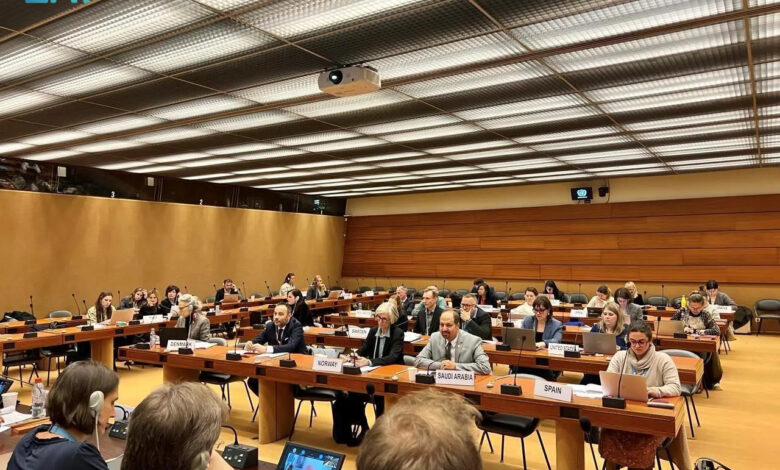
Ashraf AboArafe
The donor group to support the United Nations Office for the Coordination of Humanitarian Affairs held its expert-level meeting yesterday at the United Nations headquarters in Geneva, Swiss Confederation, chaired by the Duchy of Luxembourg, and in the presence of the representative of the Kingdom of Saudi Arabia, Assistant General Supervisor of the King Salman Humanitarian Aid and Relief Center for Planning and Development, Dr. Aqeel bin Jumaan. Al-Ghamdi.
The agenda of the meeting, which was attended by the members of the Troika, who are the former president and the incoming president of the group (the Kingdom of Saudi Arabia and the Kingdom of Norway), as well as members of the group of donor countries to support the United Nations Office for the Coordination of Humanitarian Affairs, consisting of 30 countries, included several topics, including the upcoming changes in the humanitarian program process. Adopted by the United Nations Office for the Coordination of Humanitarian Affairs (OCHA) within its strategic plan 2023-2026 AD, donors were informed about the priority documents of the Office of OCHA.
During the session, Head of the Evaluation, Planning and Monitoring Branch of the OCHA Office, Gemma Connell, presented lessons learned from the first experiences of the humanitarian program process, which help the OCHA Office in implementing its work in a concise manner, which has had a positive impact on the humanitarian coordination work provided by the Office around the world.
For his part, the representative of the Kingdom in the group, Dr. Aqeel bin Jumaan Al-Ghamdi, touched on the importance of working on the problem of internal displacement, the importance of the recommendations issued in the United Nations report, and the necessity of implementing them gradually and according to priorities, noting that internal displacement in many regions of the world constitutes a major challenge, such as Displacement in the African continent, Sudan, the Gaza Strip and others, explaining that the most important thing that must be worked on is the need to involve the private sectors and local governments, as well as the displaced themselves and the host community in programs for the displaced.
Dr. Aqeel Al-Ghamdi pointed out that the Kingdom provided nearly three billion US dollars to help displaced people around the world during previous years in the areas of food security, shelter, education, nutrition and health projects. Finally, the reform initiatives of the OCHA office and the interconnection between the reform initiatives launched by the office were discussed, during which the session was presented by Mr. Hansjörg Strohmer and Ms. Gemma Connell provided information on how to combine the main initiative’s recommendations with recommendations of humanitarian programs. They also reviewed the importance of the issue of internal displacement in the strategic plan of the Office of OCHA. The session focused on presenting a common understanding of providing humanitarian assistance in the most difficult environments, discussing proactive measures for humanitarian work, and strengthening Collective understanding of risk, which enhances shared trust between beneficiaries, governments, donors and humanitarian aid providers.
In this regard, Dr. Aqeel Al-Ghamdi also touched on the need for the humanitarian community and actors in the field of development to balance and preserve stable and long-term development gains and not treat shocks individually, and to focus on a systematic and comprehensive method and support communities instead of individuals, indicating that the humanitarian community also needs investment. In the means of communication to understand how communities deal with crises and respond by engaging with local authorities and actors, including women and youth groups, taking a local approach and improving communication with local communities, which will enable anticipating the response to real-time needs and responding in a way that helps bring people out of Humanitarian aid towards self-reliance.
During the second session, the humanitarian response to internal displacement was discussed, as humanitarian work faces major challenges with regard to internal displacement, including the shortcomings in the response of the Inter-Agency Standing Committee for the Displaced Persons.
The donor members discussed a set of recommendations aimed at achieving a faster and more integrated response that addresses the needs and priorities of the displaced population, especially with regard to laying the foundations for solutions to the dilemmas of displacement.




